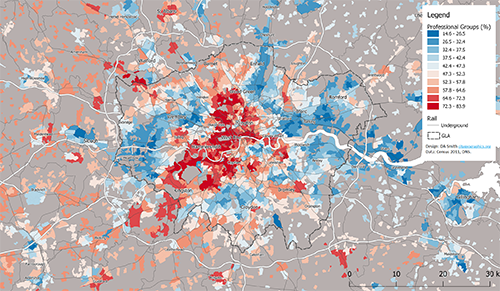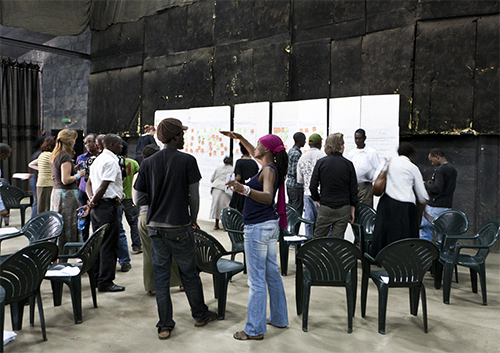RESEARCH SEMINARS
Michaelmas Term 2019 | LSE Cities Research Seminars
LSE Cities holds research seminars for LSE and non-LSE researchers and academics to present their work on cities and the ways in which people and cities interact in a rapidly urbanising world, focusing on how the physical form and design of cities impacts on society, culture and the environment.
Seminars and free and open to all but require pre-registration. If you would like to attend any of the seminars please RSVP to lse.cities@lse.ac.uk.
Thursday 7 November | 12.30 - 2.00pm
FAW.8.01h, LSE Cities, 8th Floor Fawcett House, Clement’s Inn, WC2A 2AZ
A Compact City for the Wealthy? Gentrification and Employment Accessibility Inequalities in London
Speakers: Duncan Smith, lecturer at the Bartlett Centre for Advanced Spatial Analysis, UCL

The prevalence of gentrification processes in many cities points to increasingly wealthy inner-city areas and potentially greater population segregation by income. This research investigates changes in the residential geography of London in the last decade primarily using occupational class data, finding continuing gentrification in Inner London and increasing concentrations of lower-income classes in Outer London. The employment accessibility impacts of these changes are then modelled, highlighting advantages for professional classes, and weaker accessibility for low income classes by the most affordable and sustainable transport modes. Planning policy measures to address these challenges include significant increases in council housing development and major improvements in transit connections in Outer London.
The prevalence of gentrification processes in many cities points to increasingly wealthy inner-city areas and potentially greater population segregation by income. This research investigates changes in the residential geography of London in the last decade primarily using occupational class data, finding continuing gentrification in Inner London and increasing concentrations of lower-income classes in Outer London. The employment accessibility impacts of these changes are then modelled, highlighting advantages for professional classes, and weaker accessibility for low income classes by the most affordable and sustainable transport modes. Planning policy measures to address these challenges include significant increases in council housing development and major improvements in transit connections in Outer London.
Duncan Smith is a lecturer at the Bartlett Centre for Advanced Spatial Analysis, UCL. His research interests are in GIS, urban planning, transport sustainability and visualisation, and he has previously worked at LSE Cities and in transport consultancy. Current research projects include the ESRC SIMITRI grant, exploring polycentric urban development and segregation in the Pearl River Delta Megacity Region, China.
Thursday 21 November | 12.30 - 2.00pm
9.05 Fawcett House, Clement's Inn
Navigating the language of systems thinking for Sustainable Living Places
Speakers: Dr. Corina Shika Kwami, Policy Advisor at the Royal Academy of Engineering

Rising demand for housing has not been met over recent decades, which is a symptom of complex systemic problems. Addressing these systemic problems requires working across planning, networked utilities (water, energy, gas), public services (transport, mobility, education, health) and other systems involved in delivering cities, towns and communities. Critical to effective working is developing a language that brings stakeholders to the table.
This session will highlight the challenges and opportunities in developing a common language through a case study, Sustainable Living Places, on housing commissioned by the Infrastructure and Projects Authority (IPA) and led by the Royal Academy of Engineering. Using an example of how systems thinking and mapping techniques were applied in an affordable housing scheme, the session will facilitate dialogue on the pitfalls and opportunities that working across stakeholder groups present.
Dr. Corina Shika Kwami is a Policy Advisor at the Royal Academy of Engineering leading the 'Sustainable Living Systems' project, which brings together key stakeholders across housing and infrastructure delivery.
